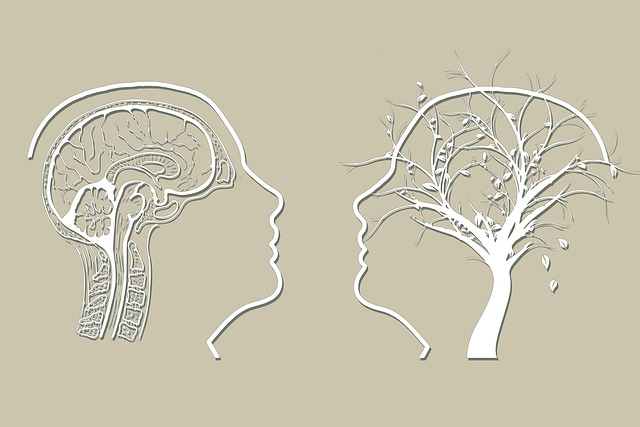Longmont Hebrew Speaking Therapy provides specialized counseling for loss, grief, and bereavement, addressing unique emotional needs. They offer personalized support, guiding individuals through the grief process with evidence-based practices like CBT and mindfulness meditation. Their culturally sensitive approach, accessible in Hebrew, equips clients with coping mechanisms, fostering mental wellness after profound loss. By recognizing and understanding grieving patterns, their therapists create a safe space for expression, helping clients rebuild lives filled with purpose and meaning.
Loss, grief, and bereavement are inevitable parts of life, yet their impact can be profound. This comprehensive guide explores these complex emotions, offering insights into understanding and navigating the difficult terrain of loss. We delve into the transformative power of counseling, highlighting its role in supporting individuals through grief. Longmont Hebrew Speaking Therapy stands out as a beacon of support, providing culturally sensitive spaces for emotional healing. Discover practical strategies and learn how therapy can help identify and address common grieving patterns.
- Understanding Loss, Grief, and Bereavement: A Comprehensive Overview
- The Role of Counseling in Navigating Difficulties After Loss
- Longmont Hebrew Speaking Therapy: Providing Supportive Spaces for Emotional Healing
- Identifying Common Grieving Patterns and How Therapy Can Help
- Practical Strategies and Tools for Coping with Grief from a Therapist's Perspective
Understanding Loss, Grief, and Bereavement: A Comprehensive Overview

Loss, grief, and bereavement are complex emotional experiences that can significantly impact an individual’s mental wellness. Understanding these processes is essential for anyone seeking support through counseling services, especially those offered by Longmont Hebrew Speaking Therapy. When a loved one passes away, it leaves behind a void that can feel overwhelming, leading to a range of intense emotions and reactions. This period is often characterized by profound sadness, anger, guilt, and confusion, as individuals navigate the reality of their loss.
Grief is a natural response to loss, and its manifestation varies from person to person. Some may experience it in waves, while others feel a constant ache. The process involves accepting the reality of the loss, negotiating the changes in one’s life, and adjusting to a new normal. Longmont Hebrew Speaking Therapy offers specialized counseling services that cater to these unique needs, providing trauma support for those who have experienced profound grief or are struggling with prolonged stress reduction methods. Their mental wellness coaching programs aim to guide individuals through this journey, fostering resilience and helping them develop healthy coping mechanisms over time.
The Role of Counseling in Navigating Difficulties After Loss

After a profound loss, individuals often find themselves navigating uncharted territories, facing emotional storms that can be overwhelming. This is where counseling steps in as a beacon of hope, guiding them through the complexities of grief and bereavement. At Longmont Hebrew Speaking Therapy, we recognize that each individual’s journey with loss is unique. Our counselors provide a safe and non-judgmental space for clients to process their emotions, memories, and challenges. Through active listening and empathy building strategies, therapists foster an environment where individuals can openly express their feelings, whether it’s sadness, anger, or guilt.
Counseling isn’t just about managing symptoms; it empowers people with effective conflict resolution techniques to navigate interpersonal relationships affected by loss. By delving into these intricate dynamics, clients gain insights and tools to enhance mental wellness. Our approach focuses on empowering individuals to find their own paths to healing, allowing them to gradually rebuild lives filled with purpose and meaning in the aftermath of loss.
Longmont Hebrew Speaking Therapy: Providing Supportive Spaces for Emotional Healing

Longmont Hebrew Speaking Therapy offers a unique and supportive environment for individuals navigating loss, grief, and bereavement. Recognizing the importance of cultural sensitivity and language accessibility, this therapy service provides a safe space for those who may feel more at ease expressing their emotions in Hebrew. The therapeutic setting fosters an atmosphere of compassion and understanding, allowing clients to explore and process their feelings without barriers.
Through specialized counseling sessions, individuals can find relief from anxiety related to grief and cultivate mental wellness. Skilled therapists employ evidence-based practices, such as compassion cultivation techniques, to help clients heal emotionally. By engaging in these practices, participants learn to embrace their experiences, fostering personal growth amidst the challenges of bereavement.
Identifying Common Grieving Patterns and How Therapy Can Help

Identifying Common Grieving Patterns and How Therapy Can Help
Grief is a natural response to loss, yet it can manifest in various ways, making it crucial for mental health professionals like those at Longmont Hebrew Speaking Therapy to understand common grieving patterns. These may include denial, anger, bargaining, depression, acceptance—a cyclical process that isn’t always linear and can differ greatly from person to person. Effective counseling recognizes these phases, providing a safe space for individuals to express their feelings without judgment.
Therapy plays a pivotal role in managing grief and bereavement by offering tools for coping with the profound emotional changes. Through techniques tailored to individual needs, therapists help clients process their loss, enhance resilience, and develop healthy adaptation strategies. Moreover, healthcare provider cultural competency training ensures that professionals like those at Longmont Hebrew Speaking Therapy can sensitively address the unique cultural and linguistic needs of diverse populations, including effectively implementing risk assessment for mental health professionals while prioritizing risk management planning to ensure optimal patient care.
Practical Strategies and Tools for Coping with Grief from a Therapist's Perspective

At Longmont Hebrew Speaking Therapy, we understand that coping with grief is a deeply personal journey. Therapists often employ practical strategies and tools to help individuals navigate their grief in healthy ways. One effective approach involves teaching clients mood management techniques, such as cognitive behavioral therapy (CBT), which equips them to identify and challenge negative thought patterns associated with loss. By fostering a sense of emotional regulation, CBT enables people to process their grief more adaptively.
Additionally, therapists may guide patients in practicing mindfulness meditation to cultivate present-moment awareness and reduce rumination on the past. This ancient practice helps individuals acknowledge their feelings without judgment, promoting self-esteem improvement as they learn to accept and navigate their emotional landscape. Through these evidence-based methods, Longmont Hebrew Speaking Therapy aims to empower those facing grief, offering them valuable coping mechanisms for a healthier healing process.
Longmont Hebrew Speaking Therapy offers a unique and supportive environment for individuals navigating loss, grief, and bereavement. By combining cultural sensitivity with evidence-based practices, this therapy provides much-needed guidance through the complex process of emotional healing. Through understanding common grieving patterns and implementing practical tools, those affected by loss can find comfort and strength to move forward. The role of counseling in this journey is invaluable, ensuring individuals don’t have to face their grief alone.














